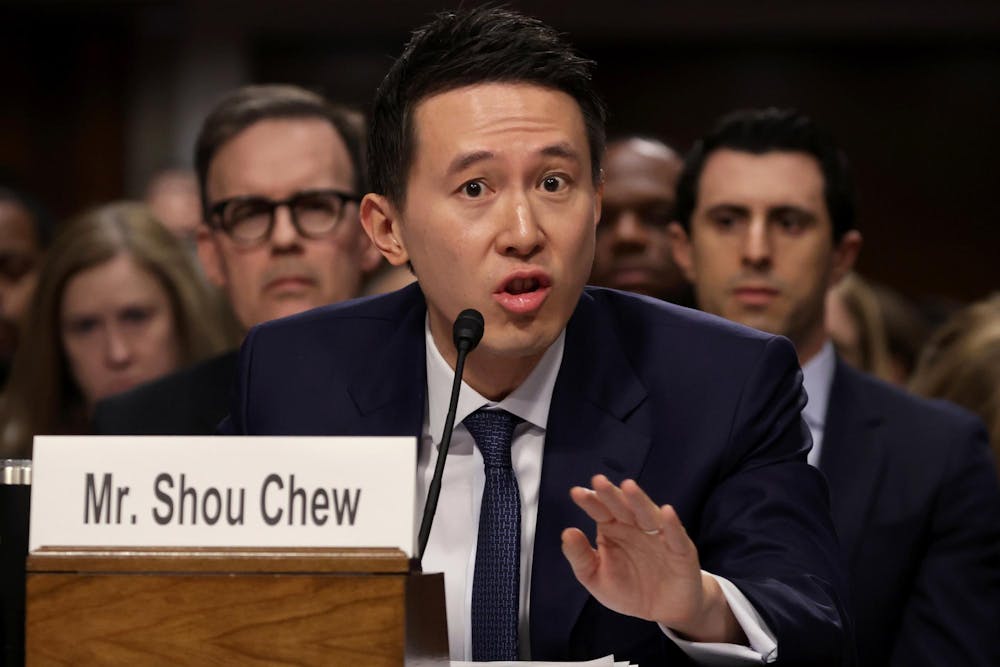My TikTok is a space for me to keep up with activists, find book recommendations and follow my favorite beauty influencers. But to the U.S. government, TikTok is a potential tool for the Communist Party of China to spy on Americans and influence the news we receive.
Earlier this month, the U.S. House of Representatives passed a bill that would force ByteDance, the parent company of TikTok, to sell the app to a U.S. company or face a ban on U.S. devices. U.S. lawmakers and government officials in support of the bill believe TikTok poses a threat to national security. With ByteDance being headquartered in China, lawmakers fear the app may leak U.S. user data to the Chinese government. But while national security is important, a ban on TikTok would be utterly pointless.
U.S. lawmakers cite national security as a primary concern yet fail to acknowledge how the U.S. government steals data from its own people. In January, for example, it was made public that the U.S. National Security Agency buys the internet browsing information of Americans from data brokers without a warrant. And in regard to other social media companies like Meta and X, the U.S. government has yet to propose a ban of their apps despite evidence that they have given personal user information to surveillance companies.
In 2016, the ACLU of Northern California revealed that Facebook, Instagram and X gave user data to Geofeedia, a social media intelligence platform that developed a monitoring tool marketed to law enforcement that monitors activists and influences the spread of information.
While Meta and X strengthened their anti-surveillance policies and cut off access to social media surveillance companies after their partnership with Geofeedia was made public, intelligence organizations like Dataminr are still allowed to use public data for AI detection of events and assessments.
With Meta and X based in the U.S., it feels like the only reason the U.S. government is worried about TikTok specifically is because its parent company is in China. The concern over whether the Communist Party of China would force TikTok to share U.S. user data with it mirrors how the government acted back in the 1950s when McCarthyism and Red Scare politics ran rampant. It just feels incredibly xenophobic and problematic.
The U.S. treatment of TikTok CEO Shou Zi Chew is also steeped ignorance. In a Senate hearing about online child safety on TikTok on Jan. 31, Republican Senator Tom Cotton repeatedly asked Chew questions about his nationality and his relationship to the Communist Party of China, despite Chew telling him multiple times he is from Singapore — an entirely different country with an entirely different form of government.
Now, I don’t know if TikTok shares U.S. user data with China or surveillance companies. The U.S. hasn’t provided the public with proof of influence from the Chinese government, so for all I know, TikTok is no different than Instagram and X in regards to privacy. If all these apps pose some security risk, it seems like the focus on a foreign-based app like TikTok is more about xenophobia than actual safety. Nonetheless, these apps have a variety of issues that need to be addressed.
On all social media apps, there are major concerns about the spread of misinformation, children’s safety, mental health and social media addiction. Each app has been subject to questioning at one point or another, but these concerns persist. While lawmakers now propose a ban of TikTok, an outright prohibition of any social media app would not only limit free speech but would also fail a strict scrutiny test.
Rather than ban TikTok, it would be more effective for the U.S. government to implement more federal regulations that would prohibit the sale of user data, establish safety measures and require social media safety training in schools. Americans have the right to know their data is secure and have some semblance of control over the algorithms that drive our feeds. All a ban would do is take away an app with communities for activists and book lovers but leave the real problem to manifest.
Erin Stafford (she/her) is a senior studying journalism with a minor in English.






